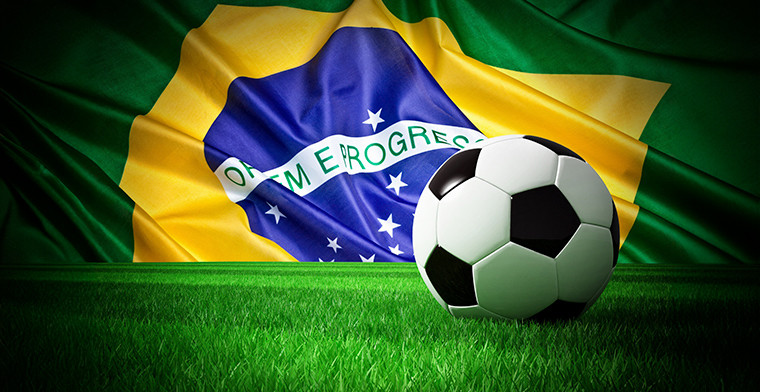A review of the complex and fascinating history of the games of chance activity in Brazil
Friday 24 de May 2024 / 12:00
2 minutos de lectura
(Buenos Aires, SoloAzar Exclusive).- A journey through the history of the game in Brazil, one of the most fascinating and complex markets in the world of betting that today faces challenges to achieve its regulation.

The history of betting in Brazil is fascinating and has undergone several changes over time. In this article, we look over its most important points.
“Jogo do bicho"
Historians claim that Europeans brought gambling to Brazil in the 16th century during colonial times, introducing card games, dice, and other means of entertainment. One of the most notable aspects of gambling in Brazil is the “jogo do bicho” (bug game), an illegal lottery that has existed for more than 125 years. This game originated in 1892 when Baron João Batista Drummond sought to attract visitors to his zoo in Rio de Janeiro. The baron would choose an animal from a list of 25 and place its image in a wooden box at the entrance to the zoo. Players bet depending on the animal selected. Although prohibited by law, “jogo do bicho” has survived more than 30 governments in Brazil, from dictatorships to democracies.
It is estimated that in 2014, the “jogo do bicho” raised between 1,300 and 2,800 million reais (between US$ 260 and US$ 554 million). Furthermore, 15% of the Brazilian population says they bet or have bet online, with an average of 263 reais per month in sports betting
Regulation and prohibition
Throughout history, Brazil has oscillated between allowing and prohibiting gambling. In 1917, the government created the first national lottery called the “Federal Lottery,” and its creation quickly became a huge phenomenon. However, that same year casinos were banned This tension between prohibiting and allowing was seen again in 1934, since during the government of Getúlio Vargas, betting was allowed again. However, in 1946, sports betting was prohibited again.
Recent legalization
On December 12, 2018, President Michel Temer approved Bill No. 13,756 that authorizes the operation of betting houses in Brazilian territory, however, after 5 years, the project was still awaiting its due approval and publication through of the responsible sectors.
In December 2023, President Luiz Inácio Lula da Silva signed into law a law regulating sports betting and online gaming, including casinos, in Brazil. This law establishes a framework for the operation of these games and imposes taxes on both companies and bettors. Although online sports betting is legal, it is not yet fully regulated.
Conclusion and expectations
In conclusion, the history of betting in Brazil is a journey full of ups and downs, from the creation of “jogo do bicho” to the recent legalization of sports betting. The market continues to evolve and adapt to current trends where, without a doubt, online games have become the new star in the betting scene.
2024 will be a year of changes for the iGaming industry in the region, especially for initial investors in this market, who will have to find a way to overcome the uncertainty of this new legal framework. If they achieve this, all indicators show that market trends will be upward.
Categoría:Exclusive
Tags: online gaming, Sportsbook , SoloAzar,
País: Brazil
Región: South America
Event
ICE Barcelona 2026
19 de January 2026
Luz Beatriz Jaramillo Serna of 21Viral: “Our presence at ICE Barcelona 2026 was exceptionally positive”
(Barcelona, SoloAzar Exclusive).- Following her participation at ICE Barcelona 2026, Luz Beatriz Jaramillo Serna, Head of Business Development, Marketing and Sales for Latin America at 21Viral, analyzes the commercial impact of the event, the trends set to shape the industry’s direction, and the company’s strategic priorities to consolidate growth across the region and new regulated markets.
Monday 16 Feb 2026 / 12:00
Toni Karapetrov from Habanero on ICE Barcelona 2026: Regulated Growth, Localization and Strategic Expansion Drive 2026 iGaming Strategy
(Barcelona, Exclusive SoloAzar).- In this interview, Toni Karapetrov, Head of Corporate Communications at Habanero, shares insights from ICE Barcelona 2026, highlighting premium content innovation, high-level industry engagement, key iGaming trends such as localization and gamification, and the company’s strategic focus on regulated market expansion and sustainable growth in 2026.
Friday 13 Feb 2026 / 12:00
Martin Ivanov, COO of CT Interactive: “We plan to consolidate our presence in regulated markets across Europe and LATAM while actively expanding into Africa"
(Barcelona, SoloAzar Exclusive).- In this interview with SoloAzar following ICE Barcelona 2026, Martin Ivanov shares key insights on CT Interactive’s commercial achievements, emerging industry trends, expansion across Africa and regulated markets, and the company’s strategic priorities for 2026.
Monday 16 Feb 2026 / 12:00
SUSCRIBIRSE
Para suscribirse a nuestro newsletter, complete sus datos
Reciba todo el contenido más reciente en su correo electrónico varias veces al mes.



















